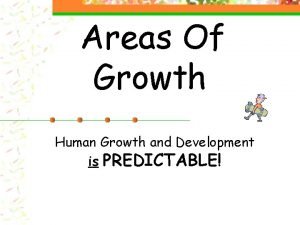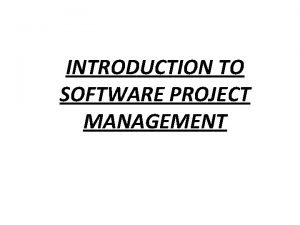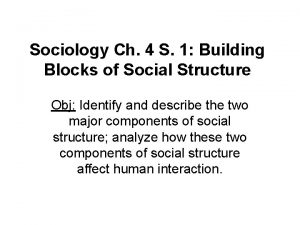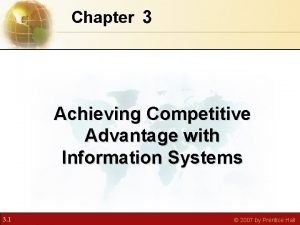THE ROLE OF PROJECT MANAGEMENT IN ACHIEVING PROJECT













- Slides: 13

THE ROLE OF PROJECT MANAGEMENT IN ACHIEVING PROJECT SUCCESS Elvin Aliyev – 11343615 Rafig Huseynov - 11343595

DIFFERENCE OF PROJECT MANAGEMENT • It has been recognised over the last 30 years that project management is an efficient tool to handle novel or complex activities. Avots has suggested that it is more efficient than traditional methods of management, such as the practice of functional divisions in a formal hierarchical organisation,

PROJECT MANAGEMENT VS PROJECT SUCCESS • Over time it has been shown that project management and project success are not necessarily directly related. The objectives of both project management and the project are different and the control of time, cost and progress, which are often the project management objectives, should not be confused with measuring project success. • A project can be considered to be the achievement of a specific objective, which involves a series of activities and tasks which consume resources. It has to be completed within a set specification, having definite start and end dates. • Project management can be defined as the process of controlling the achievement of the project objectives. Utilising the existing organisational structures and resources, it seeks to manage the project by applying a collection of tools and techniques, without adversely disturbing the routine operation of the company.

PROJECT MANAGEMENT VS PROJECT SUCCESS • The important distinction lies in the emphasis of both definitions. The project is concerned with defining and selecting a task which will be of overall benefit to the company. This benefit may be financial, marketing or technical, but this will tend to be of a long-term nature, oriented towards the expected total life span of the completed project. In the case of a construction project the benefits could be extended over 50 -100 years, depending on the anticipated building life. In contrast, project management is orientated towards planning and control. It is concerned with on-time delivery, within-budget expenditures and appropriate performance standards. This is the context of the short-term life of the project development and delivery.

FACTORS FOR SUCCESSFUL PROJECT • a realistic goal; • competition; • client satisfaction; • a definite goal; • profitability; • third parties; • market availability; • the implementation process; • the perceived value of the project.

INDICATORS OF SUCCESSFUL PROJECT • Completion to budget • Satisfying project schedule • Adequate quality standards • Meeting a project goal

FACTORS FOR UNSUCCESSFUL PROJECT • inadequate basis for project; • wrong person as project manager; • top management unsupportive; • inadequately defined tasks; • lack of project management techniques; • management techniques misused; • project closedown not planned; • lack of commitment to project

HARD AND SOFT ISSUES • The concentration on techniques may be considered as the 'hard' issues in project management. They are the easily measured and quantified concepts of time and cost. Other writers have incorporated what might loosely be called people skills alongside these more administrative functions. These people skills are 'soft' issues in management. For example Randolph and Posner N, Posner and Jaafari stressed personal, technical and organisational skills as being necessary to help control projects and achieve successful results.

INDIVIDUAL RESPONSIBILITIES • Client • The End User • The Parent Organization • The Project team • The Produced

PROJECT VS PROJECT MANAGEMENT • Time frame – project success is often commented on at the end of the project management phase. • Confusion of objectives – the objectives of project success and project management success are often intertwined. • Ease of measurement – two of the objectives within project management are common across all projects and are easy to measure quantitatively.

SIX STAGE PROJECT LIFE MODEL

SCOPE OF SUCCESS

PROJECT PERFORMANCE ASSESSMENT 1. The implementation--this is completed in stages 2 -4 and is concerned with the project management techniques and their implementation. 2. Perceived values--this is the view of users who will interact with the project during the utilisation phase. 3. Client satisfaction--at project closedown when the client can examine all influences on the project and an assessment can be made as to the satisfaction of the original goals.
 The role of project management in achieving project success
The role of project management in achieving project success Achieving masculine or feminine social role
Achieving masculine or feminine social role Traditional project management vs modern project management
Traditional project management vs modern project management Azure web role worker role example
Azure web role worker role example Rollendistanz krappmann beispiel
Rollendistanz krappmann beispiel Statuses and their related roles determine
Statuses and their related roles determine Intentional use of unfriendly or offensive behavior
Intentional use of unfriendly or offensive behavior Chapter 12 achieving cardiorespiratory fitness
Chapter 12 achieving cardiorespiratory fitness Chapter 3 achieving mental and emotional health
Chapter 3 achieving mental and emotional health Achieving competitive advantage with information systems
Achieving competitive advantage with information systems Chapter 13 achieving energy sustainability
Chapter 13 achieving energy sustainability Javelin throw way in achieving projectile motion
Javelin throw way in achieving projectile motion Achieving the dream
Achieving the dream Achieving success through effective business communication
Achieving success through effective business communication

























